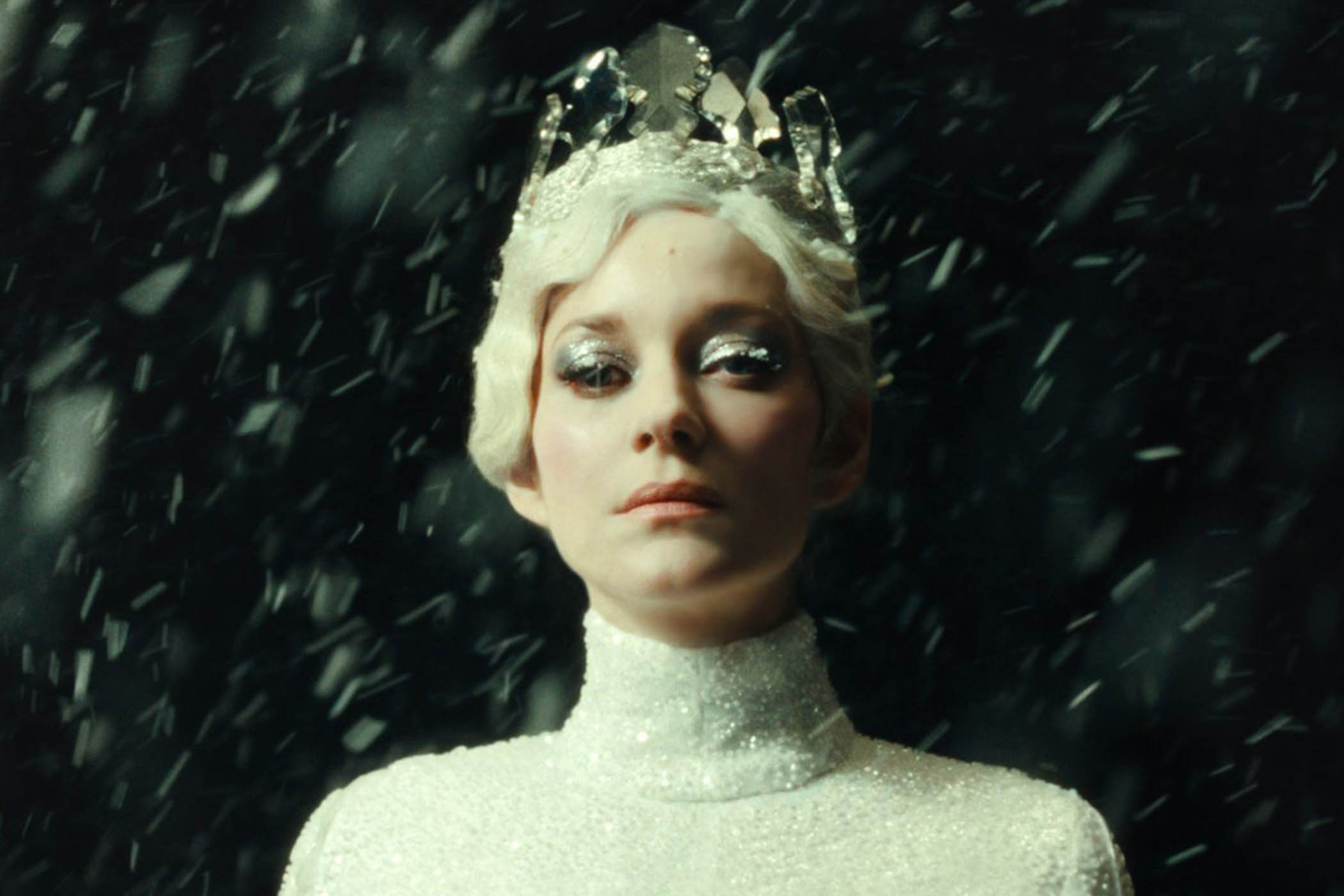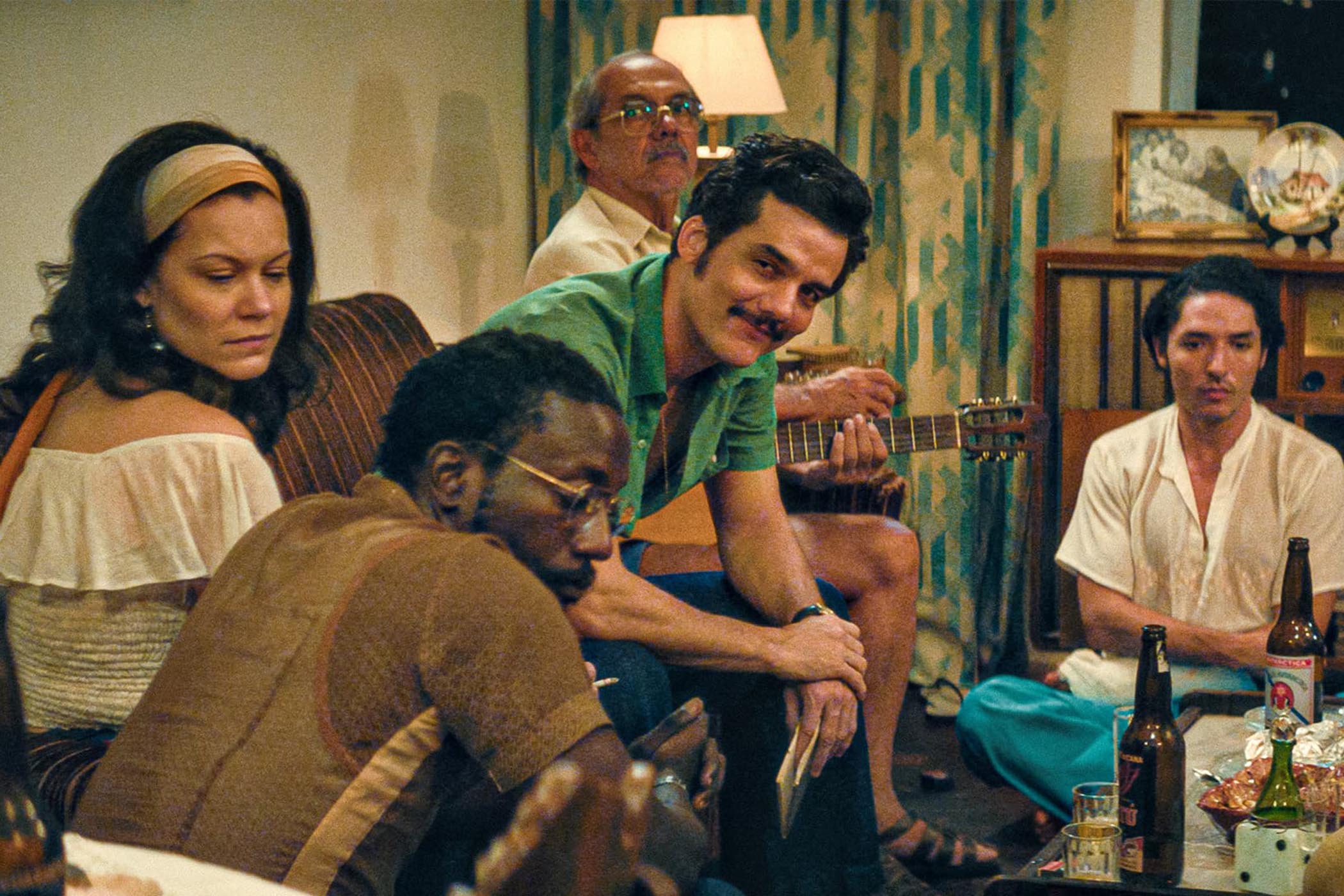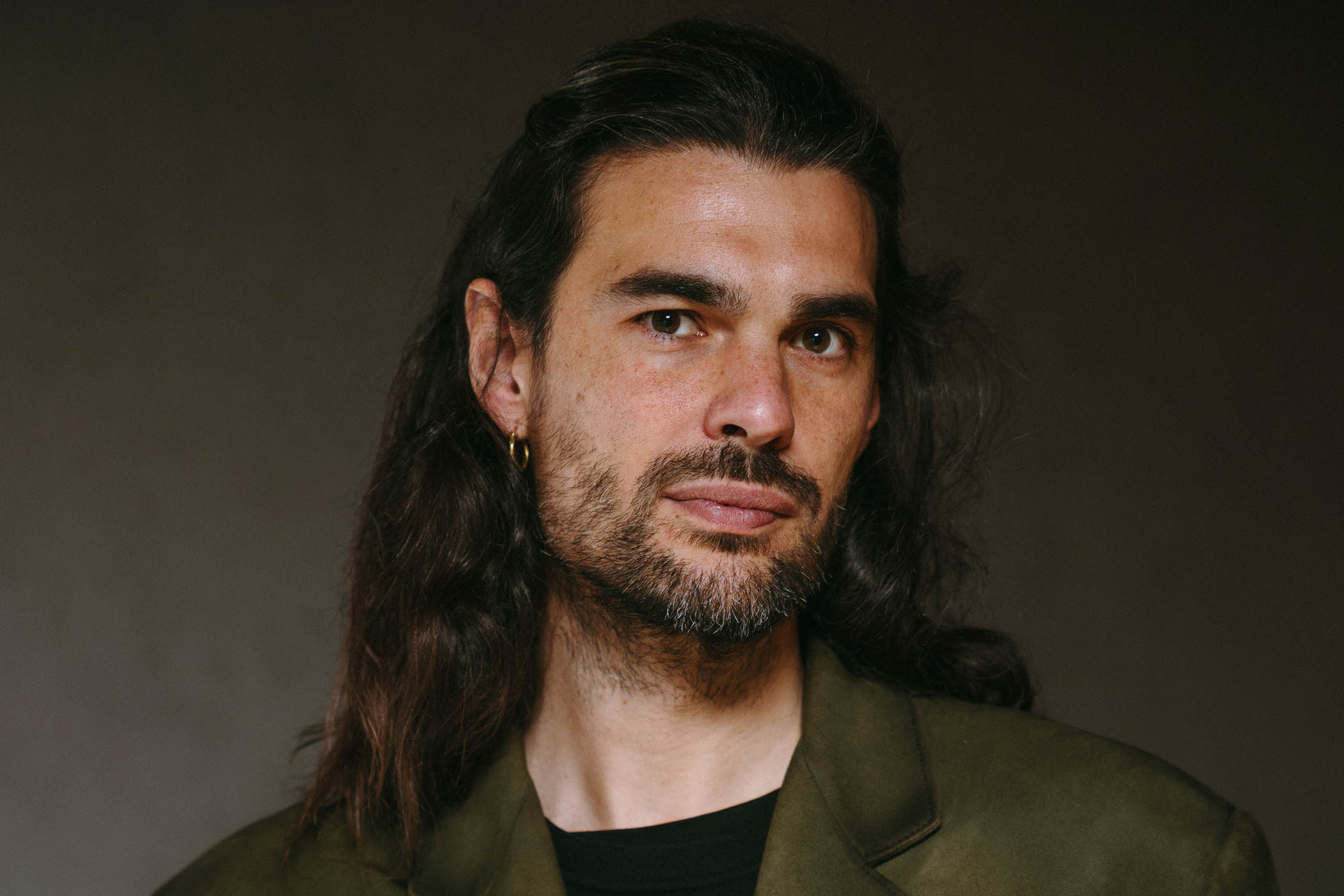The Ice Tower
(117 mins, 15) Directed by Lucile Hadžihalilović; starring Marion Cotillard, Clara Pacini, August Diehl
It’s the cruellest of winters. The flanks of the mountains are thick with snow; the roads are treacherous; the local town is miles away. Into this icy uncertainty, an orphaned teenage girl sets out, with just a few treasured beads in her possession, to find a new life. And if this sounds a little like the beginning of a fairytale, that’s because in some ways it is.
Seeking somewhere to shelter from the bitter night, 15-year-old Jeanne (a mesmerising performance from newcomer Clara Pacini) stumbles into a film studio where a version of Hans Christian Andersen’s The Snow Queen is in production. In the role of the queen is a cruel and capricious diva of a movie star, Cristina (Marion Cotillard). Jeanne, who adores the story and knows it by heart, is enchanted by the frosty allure of the actress. And Cristina sees something that she recognises and wants in this strange, intense girl with a dancer’s poise and the coal-black, unreadable eyes of a nocturnal animal. This 1970s-set picture may be the most accessible of the French director Lucile Hadžihalilović’s films to date – her other defiantly strange work includes Earwig, about a girl with teeth made of ice – but like them, there’s a chilly, uncanny magic here and a dream logic on the verge of tipping into nightmare.
The story – which touches on obsession, sacrifice and the cost of creation – can feel glacial in its pacing as well as its aesthetic. But it’s a work of meticulous beauty, both in the refracted, crystalline visuals and the enchanting score by Olivier Messiaen, with the eerie glissando of a musical saw, ethereal chimes and shimmering flurries of flute notes.
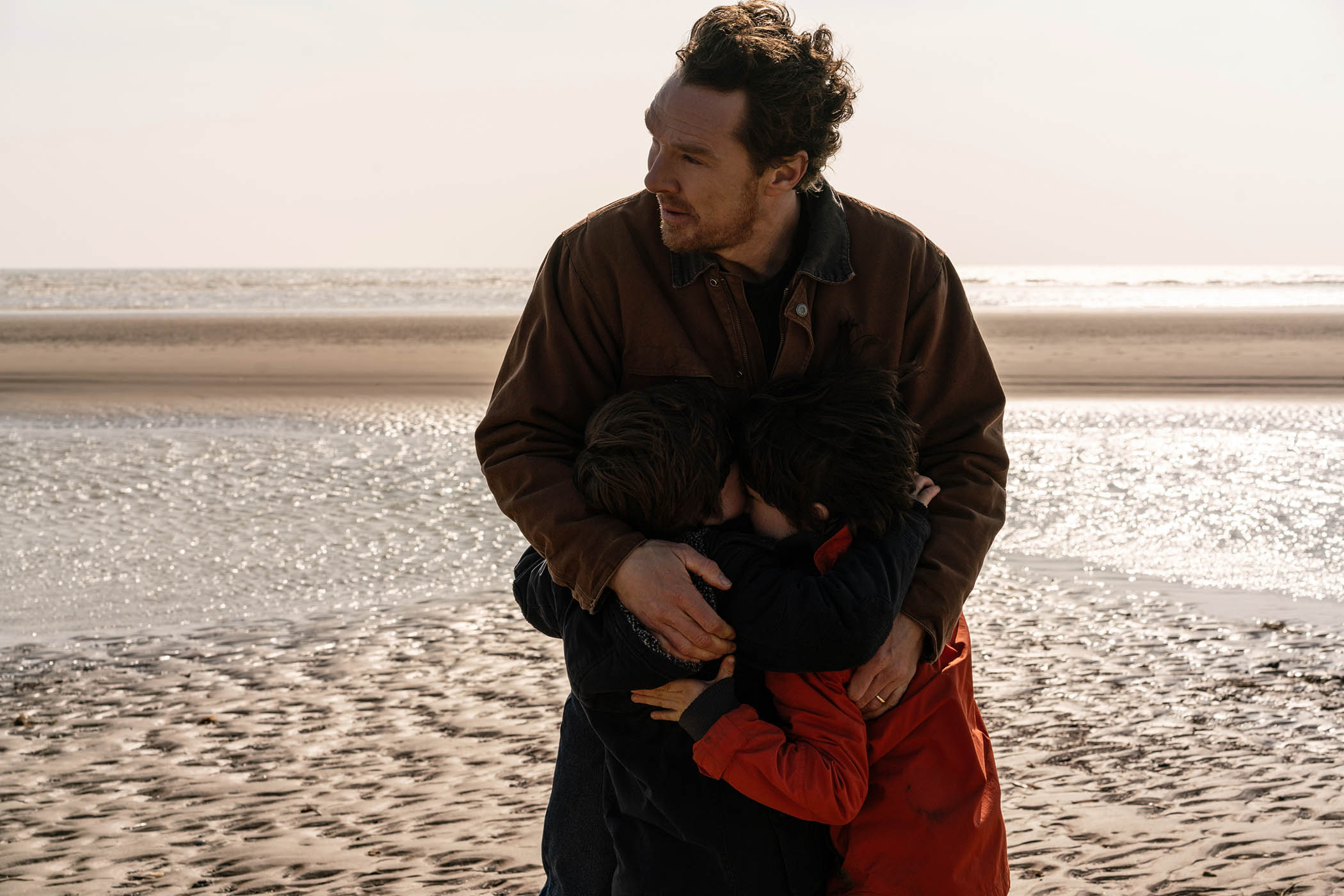
A ‘gaunt and wretched’ Benedict Cumberbatch
The Thing with Feathers
(104 mins, 15) Directed by Dylan Southern; starring Benedict Cumberbatch, Sam Spruell, David Thewlis
There are very few genuinely unfilmable books. But there are plenty that find themselves diminished, distorted and otherwise mangled by the journey from page to screen. Max Porter’s novella Grief Is the Thing with Feathers is one such book. The story of a widower who is visited by a cantankerous human-sized crow, the book is oblique, teasing and, despite the weight of the themes, unexpectedly airy and light-footed. It’s steeped in poetry: the title riffs on a line by Emily Dickinson; the crow struts from the writing of Ted Hughes, the subject of a book the bereaved man is struggling to write.
But this adaptation by Dylan Southern, starring a suitably gaunt and wretched Benedict Cumberbatch, strips away much of that literary flesh. Rather than a book on Hughes, the film’s widower is an artist wrestling with a graphic novel. You can see the reasoning behind it: film is a visual medium after all, and plunging us into scratchy, bird-clawed animated line drawings is more cinematic than watching a man weeping over a keyboard. But words are used with such care in the book, it’s as though the heart has been pecked out of the body of the story. Ultimately, the problem is the decision to show us far too much of the rather shoddy-looking crow, which makes the film literal, prosaic and faintly absurd.
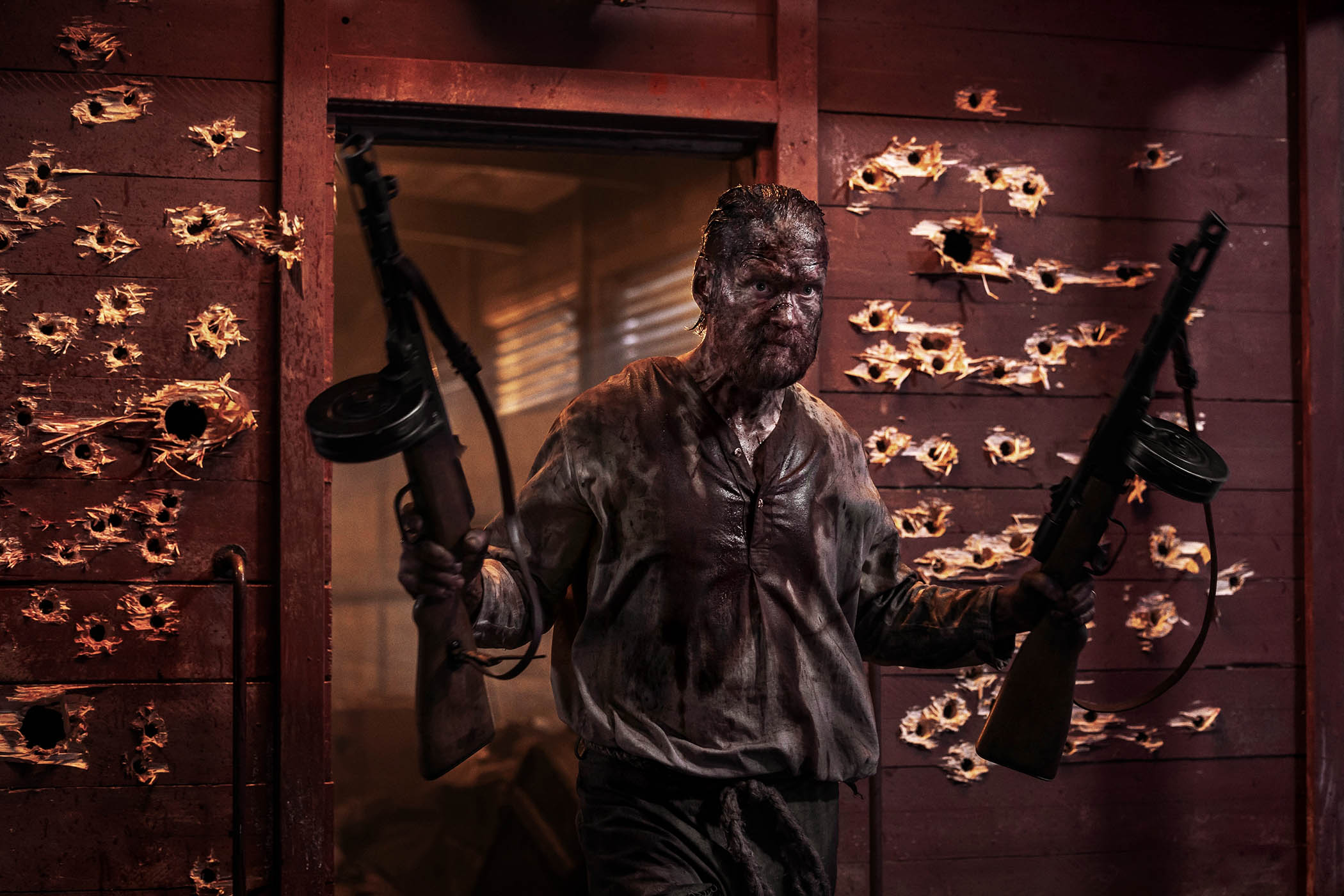
Jorma Tommila unleashes ‘gore-splattered mayhem’ in Sisu
Sisu: Road to Revenge
Newsletters
Choose the newsletters you want to receive
View more
For information about how The Observer protects your data, read our Privacy Policy
(89 mins, 15) Directed by Jalmari Helander; starring Jorma Tommila, Stephen Lang, Richard Brake
You could feed an abattoir full of carcasses into an industrial wood chipper and still not reach the level of gore-splattered mayhem achieved by Sisu: Road to Revenge. The sequel to the insanely violent, wildly entertaining Finnish second world war action movie Sisu, this picture targets Soviet forces rather than Nazis, but otherwise it’s grisly business as usual for Aatami, aka “the Immortal”, a taciturn veteran commando played through copious layers of prosthetic flayed flesh and buckets of blood by Jorma Tommila.
The plot is minimal. At the end of the war, Finland was forced to cede some territory to the USSR. On this land was Aatami’s old home, a log cabin where his wife and two sons were brutally slaughtered by an evil Russian commander named Igor (Stephen Lang). Aatami returns, dismantling his home log by log, with the intention of rebuilding it on the other side of the newly redrawn border. But Igor, accompanied by a seemingly inexhaustible supply of henchmen, is sent to slaughter the stoic and resourceful Finn. Big mistake. When I say that this is an absolute blast, I do mean it literally.
The Carpenter’s Son
(94 mins, 15) Directed by Lotfy Nathan; starring Nicolas Cage, Noah Jupe, FKA Twigs
Now here’s something we haven’t seen before. The Carpenter’s Son is a Biblical drama crossed with a demonic possession horror, set in AD15. Tortured and devout dad Joseph (Nicolas Cage, not his finest moment), serene mum Mary (FKA Twigs) and winsome, tousle-haired teen Jesus (Noah Jupe) arrive in a small Egyptian community where they hope to make a home, for a while at least. But teen Jesus almost immediately draws attention to himself by inadvertently curing a leper; meanwhile, a malevolent shape-shifting demon child (Isla Johnston) is drip-feeding venomous temptations into the ears of the Chosen One.
It’s not entirely unsuccessful. Lofty Nathan, whose previous work includes the powerful Tunisian drama Harka, is a director with a strong visual sense and he’s not afraid to take lurid and sacrilegious liberties with the early life of Christ. But Cage is a poor casting decision: he’s distractingly frantic as Joseph. And Nathan overuses histrionic sound design to disguise the fact that the film is not as creepy or frightening as it wants to be.
Photographs by 3B Productions/Sony
